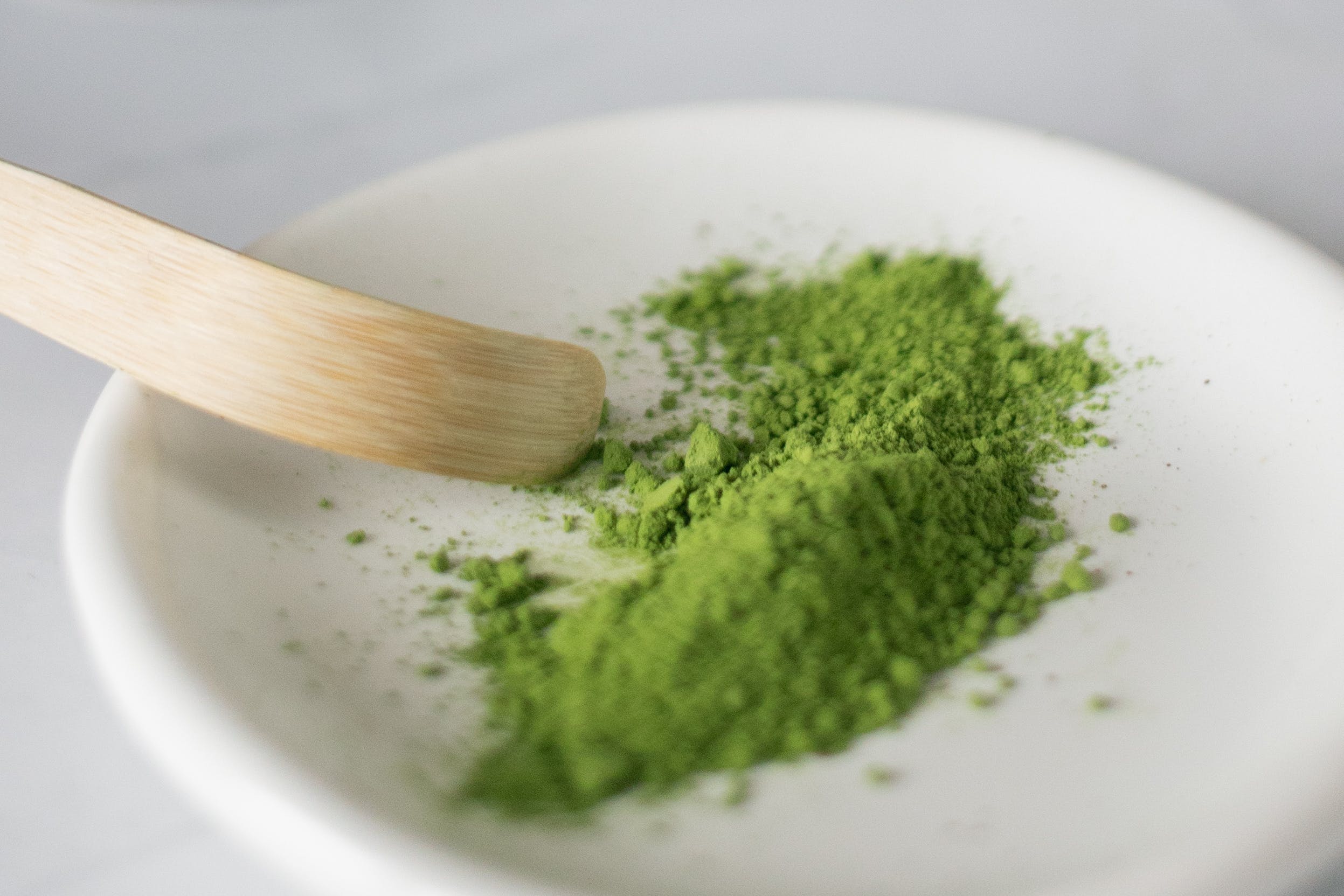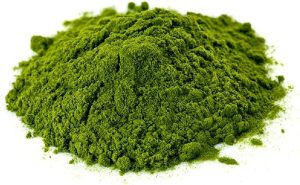
- Overview of Barley Grass Powder
- Brief History of Barley Grass Powder
- Functions of Barley Grass Powder
- Recommended Daily Intake (RDI), Recommended Dietary Allowance (RDA), Adequate Intake (AI), or Reference Nutrient Intake (RNI) for Barley Grass Powder
- Deficiency of Barley Grass Powder
- Food Sources of Barley Grass Powder and Where to Get It From
- Barley Grass Powder and Its Interaction with Other Medications
- Websites and Articles to Delve into the Benefits of Barley Grass Powder
- Disclaimer
Overview of Barley Grass Powder
Barley grass powder is a nutrient-dense supplement derived from the young leaves of the barley plant.
Packed with vitamins, minerals, antioxidants, and chlorophyll, it offers a range of potential health benefits. Rich in vitamin A, vitamin C, and vitamin K, as well as essential minerals like iron and calcium, barley grass powder supports overall health. Its high chlorophyll content contributes to detoxification and antioxidant properties, while dietary fiber promotes digestive health. Barley grass powder is alkalizing, helping to balance pH levels, and its anti-inflammatory potential may benefit those dealing with inflammatory conditions.
Available in powder or capsule form, it can be easily incorporated into beverages or smoothies. However, it’s advisable to consult with a healthcare professional before adding barley grass powder to your routine, especially if you have health concerns or are taking medications.
Brief History of Barley Grass Powder
The use of barley grass dates back thousands of years, with historical records suggesting its cultivation in ancient civilizations. Barley, a versatile cereal grain, has been utilized in various forms for food, beverages, and medicinal purposes. The consumption of young barley grass, particularly in powdered form, gained prominence in the 20th century with the rise of interest in natural health and alternative medicine.
The pioneering work of Japanese researcher Dr. Yoshihide Hagiwara in the 1970s significantly contributed to the popularization of barley grass powder. Dr. Hagiwara extensively studied the nutritional benefits of barley grass and introduced a powdered supplement known as “Barley Green.” This product gained recognition for its rich nutrient profile, including vitamins, minerals, and chlorophyll.
Since then, barley grass powder has become a widely consumed dietary supplement, valued for its potential health benefits. It is often promoted for its alkalizing properties, antioxidant content, and contributions to overall well-being. Today, barley grass powder is a popular choice in the realm of green superfood supplements, embraced by individuals seeking convenient ways to enhance their nutritional intake.
| Time Period | Development of Barley Grass Powder |
|---|---|
| Ancient Civilizations | Barley, a versatile cereal grain, is cultivated and used in various forms for food, beverages, and potential medicinal purposes. |
| 20th Century | Dr. Yoshihide Hagiwara’s research in the 1970s contributes significantly to the popularity of barley grass. His work leads to the introduction of “Barley Green,” a powdered supplement known for its rich nutrient profile. |
| Present Day | Barley grass powder becomes a widely consumed dietary supplement, valued for its alkalizing properties, antioxidant content, and contributions to overall well-being. It gains popularity in the green superfood supplement category for its convenient nutritional benefits. |
Functions of Barley Grass Powder
Barley grass powder is renowned for its nutrient-rich composition, offering various potential health benefits. Here are some of the functions and potential uses of barley grass powder:
- Nutrient-Rich Superfood:
- Barley grass powder is a concentrated source of vitamins, minerals, and antioxidants, serving as a nutrient-dense addition to the diet.
- Vitamin and Mineral Content:
- It provides essential nutrients, including vitamins A, C, and K, as well as minerals such as iron, calcium, and potassium, supporting overall health.
- Chlorophyll Source:
- Rich in chlorophyll, barley grass powder may assist in detoxification processes, promote alkalinity, and offer antioxidant benefits.
- Digestive Health:
- The dietary fiber in barley grass supports digestive health by aiding in regular bowel movements and fostering a healthy gut microbiome.
- Anti-Inflammatory Properties:
- Some studies suggest that barley grass exhibits anti-inflammatory effects, potentially benefiting individuals dealing with inflammatory conditions.
- Immune System Support:
- The vitamins and minerals in barley grass contribute to immune system function, helping the body defend against infections and illnesses.
- Energy Boost:
- Barley grass powder may provide a natural energy boost due to its nutrient content, supporting overall vitality and well-being.
- Alkalizing Properties:
- Barley grass is considered alkaline, and its consumption may help balance the body’s pH levels, promoting an alkaline environment associated with better health.
- Antioxidant Support:
- The antioxidants in barley grass, such as flavonoids and beta-carotene, help neutralize free radicals, reducing oxidative stress and supporting cellular health.
- Skin Health:
- Some users claim that barley grass powder contributes to improved skin health and a radiant complexion, potentially due to its antioxidant and nutrient content.
- Weight Management:
- Barley grass powder, when included in a balanced diet, may contribute to weight management by providing essential nutrients with relatively low calories.
- Blood Sugar Regulation:
- Preliminary research suggests that barley grass may have a role in blood sugar regulation, which can be beneficial for individuals managing glucose levels.
As with any dietary supplement, individual responses may vary, and it’s advisable to consult with a healthcare professional before incorporating barley grass powder into your routine, especially if you have underlying health conditions or are taking medications.
Recommended Daily Intake (RDI), Recommended Dietary Allowance (RDA), Adequate Intake (AI), or Reference Nutrient Intake (RNI) for Barley Grass Powder
The nutritional content of barley grass powder can vary based on factors such as the growing conditions, harvesting methods, and processing. As of 2023, there are no established Recommended Dietary Allowance (RDA), Adequate Intake (AI), or Reference Nutrient Intake (RNI) values specifically for barley grass powder.
Barley grass powder is typically consumed as a dietary supplement rather than a primary source of nutrition. When considering its use, it’s important to recognize that the primary value lies in its concentration of vitamins, minerals, and other bioactive compounds.
For personalized dietary recommendations, including the use of supplements like barley grass powder, it is advisable to consult with a healthcare professional or a registered dietitian. They can provide guidance based on individual health status, dietary needs, and potential interactions with medications or existing health conditions.
It’s also worth noting that while barley grass powder can be a nutritious addition to a well-balanced diet, obtaining nutrients from a variety of whole foods is generally recommended for optimal health.
Deficiency of Barley Grass Powder
Barley grass powder itself is not an essential nutrient, and there is no recognized deficiency associated with its absence. Barley grass powder is a concentrated source of various nutrients, and while it can be a valuable addition to a balanced diet, it is not a required component for maintaining health.
However, if someone follows a diet that lacks essential nutrients found in barley grass powder, there could be a risk of nutrient deficiencies. Barley grass powder is rich in vitamins, minerals, antioxidants, and chlorophyll, and these nutrients play important roles in supporting overall health.
To prevent nutrient deficiencies, it’s crucial to maintain a well-rounded diet that includes a variety of fruits, vegetables, whole grains, lean proteins, and other nutrient-dense foods. If there are concerns about meeting nutritional needs or if someone has specific health conditions, consulting with a healthcare professional or a registered dietitian is advisable to ensure an appropriate dietary plan.
It’s also important to note that while barley grass powder can be a convenient way to supplement certain nutrients, it should not replace a diverse and balanced diet composed of whole foods. Individual nutritional requirements can vary, and personalized advice from healthcare professionals is essential for making informed dietary choices.
Food Sources of Barley Grass Powder and Where to Get It From
Barley grass powder is typically obtained from the young leaves of the barley plant (Hordeum vulgare). While the powder itself is often sold as a dietary supplement, the primary source of barley grass is the barley plant. Here are some ways to incorporate barley grass into your diet:
- Barley Grass Powder Supplements:
- The most common way to consume barley grass is in the form of powdered supplements. These supplements are widely available in health food stores, online retailers, and pharmacies.
- Barley Grass Juice:
- Some health food stores and juice bars offer freshly squeezed barley grass juice. This is a more concentrated form of barley grass that retains many of its nutrients.
- Barley Grass Tablets or Capsules:
- If you prefer a convenient option, barley grass is also available in tablet or capsule form. This allows for easy consumption without the need for mixing powders.
- Barley Grass in Smoothies:
- You can add barley grass powder to your homemade smoothies. Combine it with other fruits, vegetables, and liquid of your choice for a nutrient-packed beverage.
- Barley Grass in Soups or Salads:
- Finely chopped fresh barley grass can be added to salads or soups to enhance the nutritional content of your meals. This is less common but can be a creative way to include barley grass in your diet.
When purchasing barley grass products, consider the following tips:
- Quality:
- Choose reputable brands or suppliers to ensure the quality and purity of the barley grass powder or supplements.
- Organic Options:
- If possible, opt for organic barley grass products to minimize exposure to pesticides.
- Read Labels:
- Check the labels for additional ingredients and ensure there are no additives or fillers that you may want to avoid.
It’s important to note that while barley grass can provide certain nutrients, it’s always advisable to obtain a wide range of nutrients from a variety of whole foods in your diet. If you have specific dietary concerns or health conditions, consult with a healthcare professional or a registered dietitian for personalized guidance.
Barley Grass Powder and Its Interaction with Other Medications
Barley grass powder, being a natural supplement, may interact with certain medications. While barley grass itself is generally considered safe and nutritious, it’s important to be aware of potential interactions, especially if you are taking medications. Here are some considerations:
- Blood-Thinning Medications (Anticoagulants/Antiplatelets):
- Barley grass powder contains vitamin K, which plays a role in blood clotting. If you are taking blood-thinning medications (e.g., warfarin), the vitamin K content in barley grass may interfere with the action of these drugs. It’s advisable to maintain consistent vitamin K intake and consult with your healthcare provider for appropriate adjustments to medication if needed.
- Immunosuppressant Medications:
- Barley grass, like many other supplements, may have immune-stimulating properties. If you are taking immunosuppressant medications (e.g., corticosteroids or certain drugs after organ transplantation), the immune-stimulating effects of barley grass could potentially interfere with the intended suppression of the immune system. Consult your healthcare provider before using barley grass supplements in such cases.
- Antidiabetic Medications:
- Barley grass may have hypoglycemic effects, potentially lowering blood sugar levels. If you are taking medications for diabetes, it’s important to monitor your blood sugar levels closely and consult with your healthcare provider for potential adjustments to your medication.
- Thyroid Medications:
- Some sources suggest that barley grass may contain compounds that could potentially affect thyroid function. If you are taking medications for thyroid conditions, it’s advisable to inform your healthcare provider about any significant dietary changes, including the addition of barley grass supplements.
Always inform your healthcare provider about any supplements you are taking, including barley grass powder, to ensure that there are no potential interactions with your medications or underlying health conditions. It’s crucial to follow healthcare professionals’ guidance and not self-prescribe supplements, especially if you are on medication or have specific health concerns.
Websites and Articles to Delve into the Benefits of Barley Grass Powder
Disclaimer
The information is solely provided for educational purposes. It is not intended to diagnose, treat, cure, or prevent any disease. Seek the advice of your physician or qualified healthcare provider with any questions you may have regarding a medical condition at all times. Never disregard professional medical advice because of something you have read or learned from this article.






